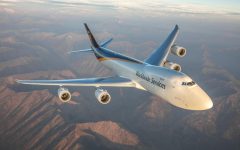
Turgut Erkeskin, President, FIATA International Federation of Freight Forwarders Associations in an exclusive interview shared, “The disruptions caused by the COVID-19 pandemic, ongoing geopolitical tensions, and trade volatility have created a complex environment for all stakeholders, including freight forwarders, airlines, and airports. Challenges include ongoing strain on supply chains, with fluctuations in demand and regulatory changes causing unpredictability. For example, the shortage of semiconductor chips has disrupted the supply of electronic goods, and customs procedures in key markets like the EU have become more complex post-Brexit. Fuel costs are also a growing concern, with significant rises in the price of aviation fuel in the past year. Labour shortages in key areas such as cargo handling and customs processing continue to disrupt operations, and some airports have struggled with congested terminals and delays, particularly during peak times. Trade flows have become more volatile further adding uncertainty. However, there are significant opportunities ahead. The rise of e-commerce has increased demand for time-sensitive, high-value shipments. In the UK alone, online shopping saw a record 20 per cent growth during the pandemic, increasing reliance on air cargo for fast deliveries. Additionally, emerging technologies in automation, such as self-driving vehicles for ground handling and Artificial Intelligence (AI)-powered cargo tracking systems, can reduce operational costs and improve efficiency. The growing focus on sustainability also presents an opportunity, with companies like Lufthansa and KLM investing in sustainable aviation fuels (SAF) to reduce carbon emissions, providing the chance for industry-wide improvements.” FIATA, jointly with ACAAI is all set to host its Regional Asia Pacific Meeting in New Delhi in May from 21-24.
 Cargo Breaking News
Cargo Breaking News


